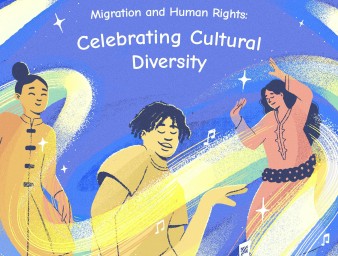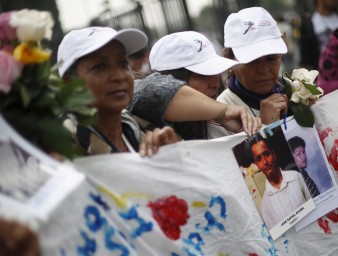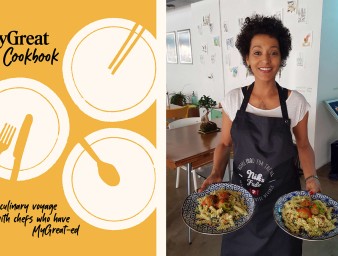Dari Dapur: Reframing narratives on migration in Malaysia
15 July 2024
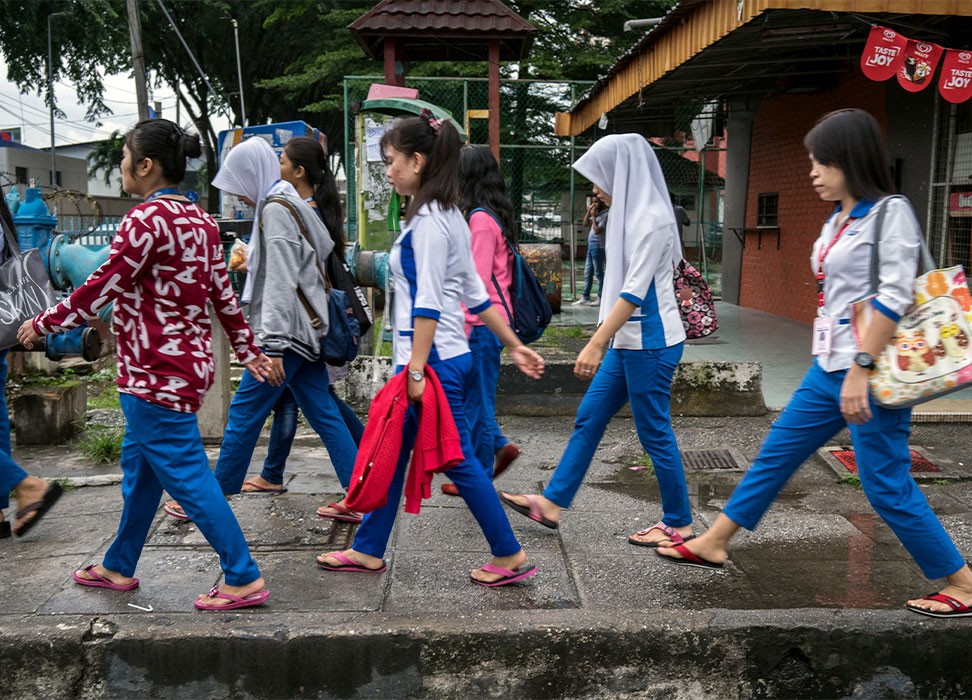
“I love what we have created here, this little safe space of family and food, which is always at the centre of what brings us together. I feel more humanity in this space than I do anywhere else. There is something about Dari Dapur that really touches the bottom of my heart,” said Melisa Idris, a broadcast journalist with Malaysia’s top news channel, Astro Awani.
Idris had just finished eating what she assessed was probably more than her fair share of a potluck lunch at the Kachin Refugee Learning Centre in Kuala Lumpur, Malaysia. Following two potluck events hosted by the Dari Dapur campaign this year, for the third time, Malaysians and the country’s migrant worker and refugee communities came together around dishes that evoked a special memory of their home.
Idris was not at the event to report the news that day. She was there as one of the spokespeople for the Dari Dapur campaign, which, through its flagship short documentary film series, brings together some of Malaysia’s most influential personalities with communities of people on the move as their hosts for a meal they cook together and listen to each other’s stories, hopes and dreams, finding a common ground over what unites all of humanity across regions and generations – food.
Some told stories of a lost home, a family separation, of ill treatment in detention, and of hopes for change. Others reflected on finding common ground with their Malaysian hosts and the importance of telling their own stories.
Dari Dapur (or Stories from the Kitchen, in English) is the Malaysian subset of UN Human Rights’ global #StandUp4Migrants narrative change initiative, the second edition in the Asia-Pacific region following the MyGreat Story campaign that was launched in Australia in September 2022. It was created in partnership with Kuala Lumpur-based social impact production team, untitled kompeni, and aims to change the discourse around migration, bringing communities together and upholding the human rights of all migrant workers, refugees and other people on the move.
While in Malaysia and around the world narratives on migration have increasingly become dangerous, exclusionary and divisive, the Dari Dapur campaign presents a new narrative around stories and values Malaysians share with migrants and refugees. It has garnered an overwhelmingly positive response from millions of people viewing the films on social media and other public platforms.
“
I believe in one thing, a person will only hate you if they don’t understand you and if they don’t know who you are, if they don’t know your background or if you don’t tell your story.
“
Prince, Pelarian Rohingya refugee
Malaysia is one of the most diverse countries on the Asian continent, a diversity that is rooted in a rich history of migration. It comprises some three million documented and two to four million undocumented migrants, as well as 188,000 refugees. Migrant workers constitute around a fifth of the country’s labour force. The Government of Malaysia has pledged to uphold respect for the different cultures, languages and religions inside its borders and the values of tolerance, understanding and acceptance are embedded in its Constitution.
According to rigorous research commissioned by UN Human Rights, on which the Dari Dapur campaign was designed, most Malaysians see the benefits migration brings to the economy and society. However, some said they are daunted by the complexity of issues around integration and culture that it raises.
Around the world in one meal
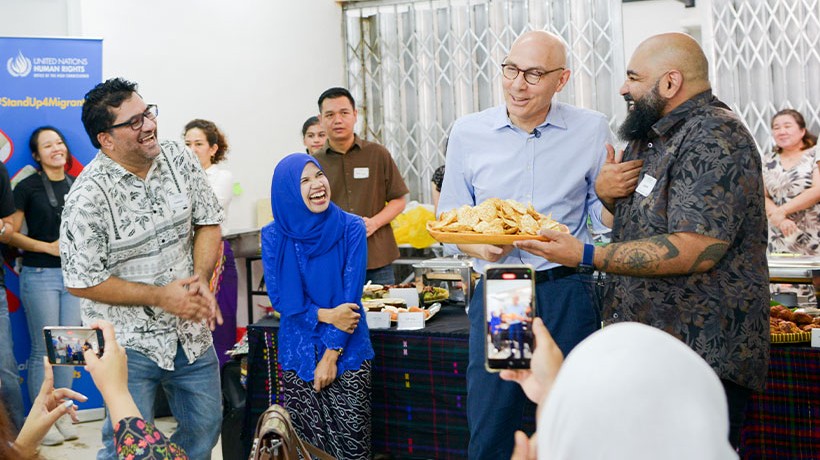
High Commissioner Türk is presented with a dish chosen for him by his migrant/refugee pair at the potluck lunch. Credit: © Dari Dapur
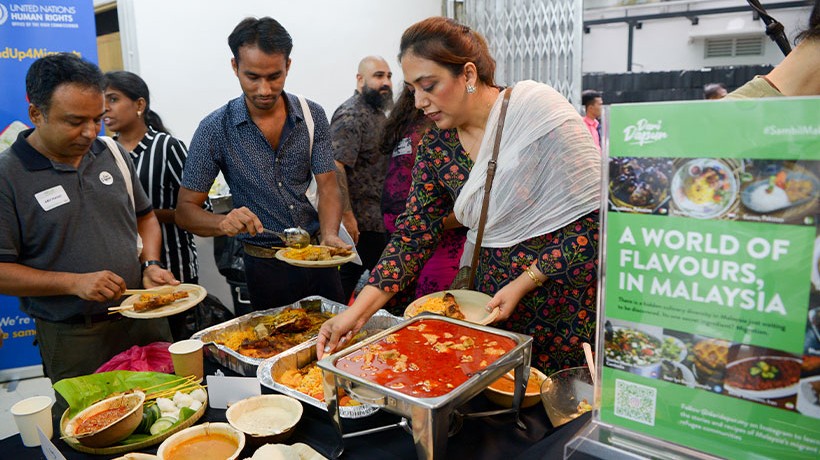
Participants choosing dishes shared by other participants at the potluck event. © Dari Dapur
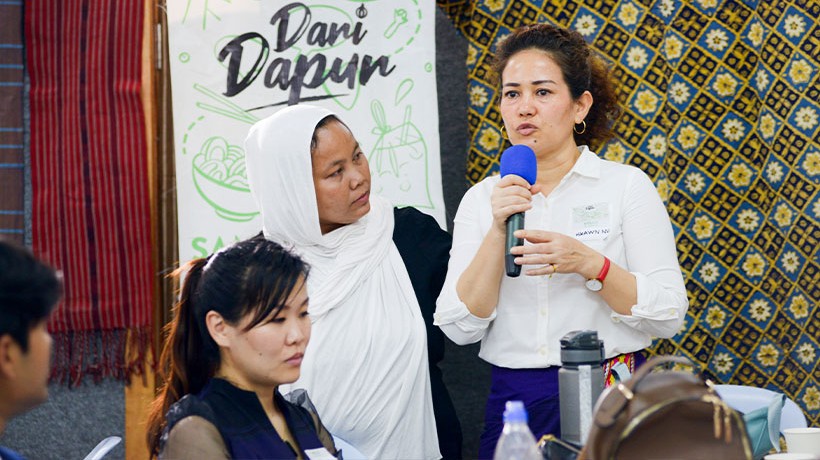
Hkawn Nu Nhkum, a Kachin refugee, shared the challenges she and her community faced, and the changes they are hoping for. © Dari Dapur
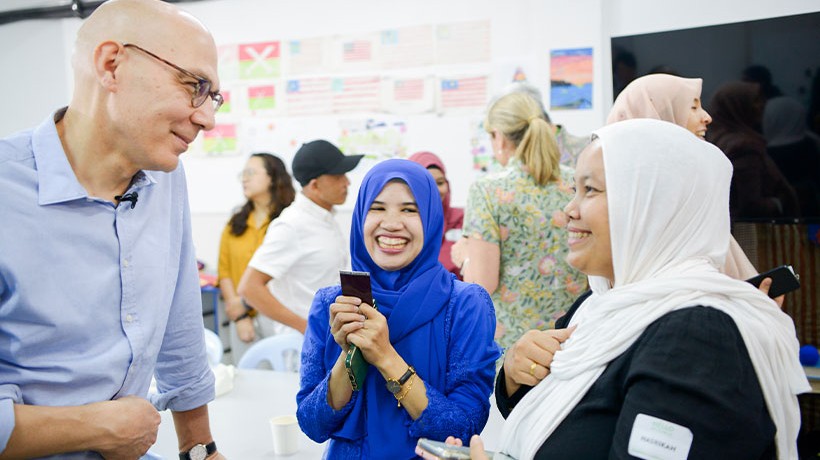
Volker Turk, UN High Commissioner for Human Rights, engaged in conversation with refugees and migrants during the potluck event. © Dari Dapur
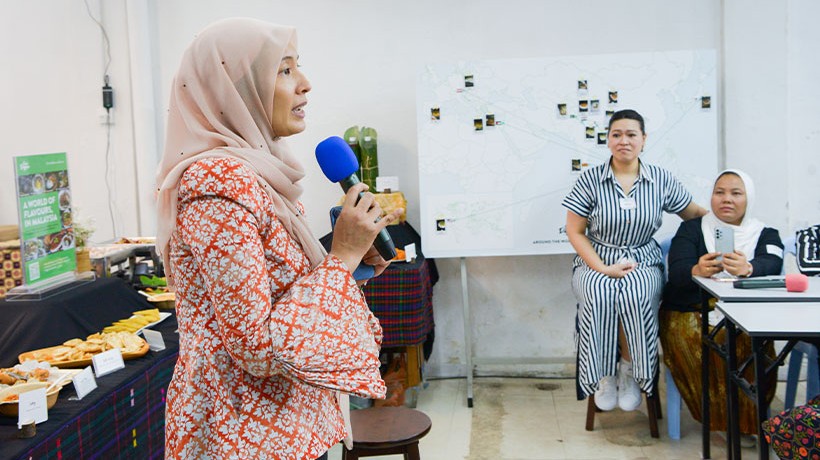
Nurul Izzah Anwar, a Malaysian political activist, shared her key takeaways from the potluck event. Credit: © Dari Dapur
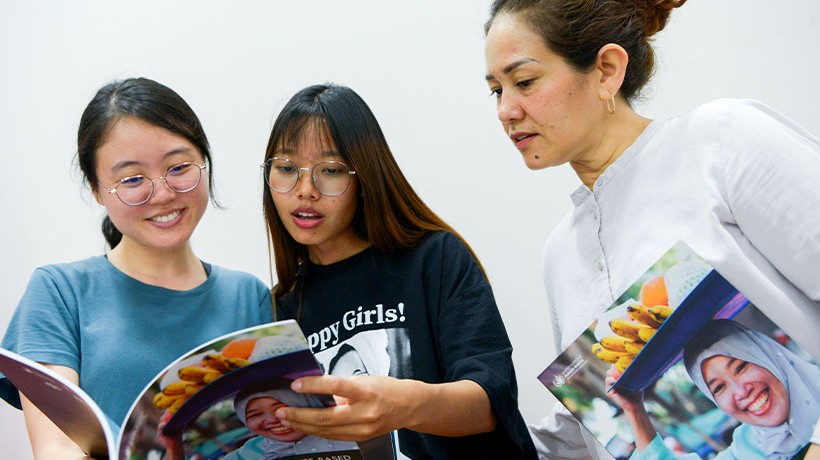
Participants took turns to look at the first copies of an innovative guide: "Building Human Rights-Based Migration Narratives: The Story of Dari Dapur and MyGreat Story.” © Dari Dapur
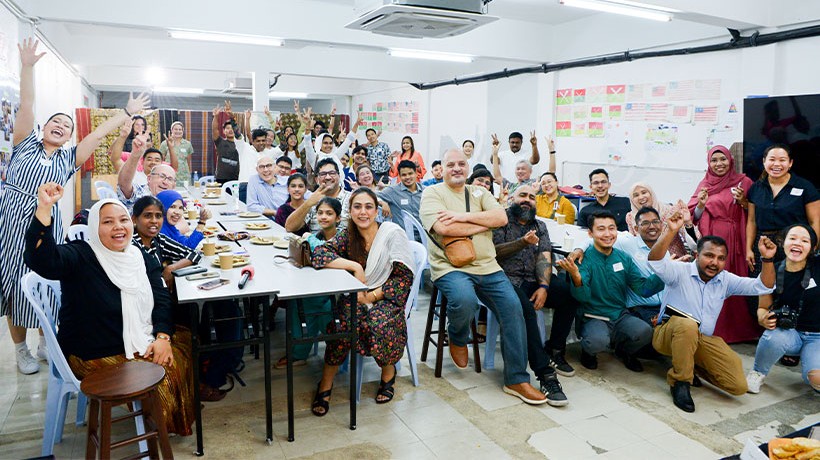
Refugees, migrants, Malaysians, and High Commissioner Türk and his team posed for a group photo at the end of the potluck event. © Dari Dapur
The research also showed that Malaysians overwhelmingly agree that respect for human rights is a sign of a decent society and that everyone deserves equal rights. Some 63 percent said that communities are stronger when everyone is supported; more than half believe in helping others no matter who they are or where they are from; and around 35 percent agreed that people fleeing persecution or war should be welcomed and the same number wanted to welcome those who were unable to obtain healthcare, education, food or decent work in their countries.
“Migration is a complicated and often abstract issue for many Malaysians, but storytelling is a good way to cut through the noise,” said Pia Oberoi, UN Human Rights’ Senior Advisor on Migration in the Asia Pacific region. “Our research found that people do want to hear and see the everyday lives of people on the move, to understand and appreciate that we have more in common than what divides us.”
Behavioural science at the heart of human rights
On that hot afternoon in June, the usually informal lunch hosted a special guest, High Commissioner Volker Türk, who made a stop at the centre as part of his recent official visit to Malaysia.
“This community cuts across Malaysians, migrant workers from different countries and refugees… There is a real sense of people coming together around food but also around their shared experience and that is beautiful to see,” Türk said.
Drawing on the findings of the rich research it conducted in the context of Dari Dapur and MyGreat Story, UN Human Rights produced an instructive guide to support civil society actors in the Asia Pacific region who wish to develop public narrative change campaigns to counter harmful and dehumanising discourse on migration and human rights.
The guide, entitled “Building Human Rights-Based Migration Narratives: The Story of Dari Dapur and MyGreat Story” outlines the eight-step methodology, firmly anchored in behavioural science, that UN Human Rights followed in the process of research and development for the #StandUp4Migrants campaign editions in two pilot countries, Malaysia and Australia.
Behavioural science refers to an evidence-based understanding of how people behave and make decisions and respond to context. Understanding the drivers of individual and group behaviours is therefore key to designing impactful narrative change interventions, influencing attitudinal shifts in societies, and bringing about effective social and behaviour change. UN Human Rights has increasingly used behavioural science as a means of improving the delivery of its mandate and achieving its human rights goals - from fostering changes in attitudes and behaviour, to interventions at legislative, policy and community-based levels.
“The field of behavioural science is showing enormous potential for human rights. It can help us understand how people behave and the choices they make. It can point us to our audience,” Türk said.
“Through outlining the eight steps we followed, we hope the guide will be a concrete support to civil society actors and other stakeholders who are interested in developing similar public engagement campaigns. We hope that more people will be inspired to join forces on narrative change, advancing towards a future of equality and dignity.”
Around the world, migration is often positioned as a societal problem, with people on the move only represented in terms of challenges and costs, for example to the economy or society. Harmful narratives perpetuate misperceptions and stereotypes of migrants or disinformation around migration and can lead to the dehumanization of people on the move.
These narratives are often rooted in xenophobia and racism and can reinforce an “us-vs-them” perception, excluding people in vulnerable situations from our societies. How people perceive and speak about migrants and migration plays a fundamental role in guaranteeing the equality and the human rights of migrants, refugees and other people on the move.
“Healthy, vibrant societies are societies which celebrate diversity and our common humanity. They stand up – actively – against hate and discrimination. And they celebrate the principles of justice, dignity, equality and respect for all,” Oberoi said.

